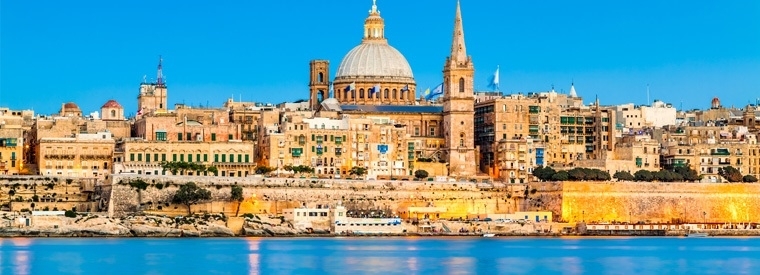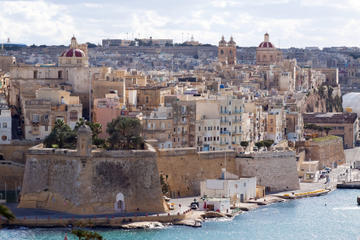Discover magical Malta

The strategically-located islands of Malta have been ruled and fought over by various powers over the centuries. Contrary to popular belief amongst its inhabitants, the south of Malta is not Europe's most southern point, ranking fourth to Gibraltar, Cyprus and Greece.
A | B | C | D | E | F | G | H | I | J | K | L | M | N | O | P | Q | R | S | T | U | V | W | X | Y | Z
» San Anton Gardens
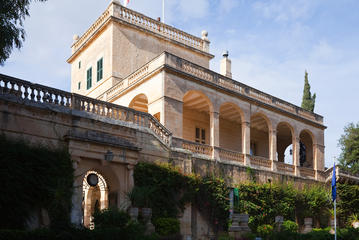
San Anton Gardens are the most beautiful of the few public parks in Malta. They surround an ornate palazzo built by Grand Master of the Knights of St John, Antoine de Paule, as his summer residence in 1636 – it’s now the official residence of the Maltese President – and were bequeathed to the public in 1882. A sweet-smelling citrus orchard lies at the heart of the walled gardens, a tranquil haven in the middle of busy Attard. They are landscaped in a formal Italianate fashion, dotted with elaborate follies, sculptures and fountains …
» Senglea
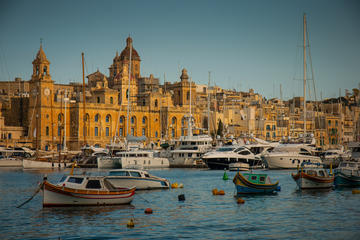
Of the three villages of Cottonera — Senglea, Birgu, and Cospicua — Senglea is a true gem that should not be missed. From walks along the promenade to climbing the famous steps in this hilly town, it's a beautiful visit that makes visitors feel as though they're the first to discover this haven. Don't miss the gardens out on the peninsula; the Church of our Lady of Victories, which took 200 years to complete construction; the imposing walls of this formerly fortified town, which looks straight out of Game of Thrones; and the massive Church of St. Paola, whose silver domes can be seen from a distance …
» St John's Co-Cathedral
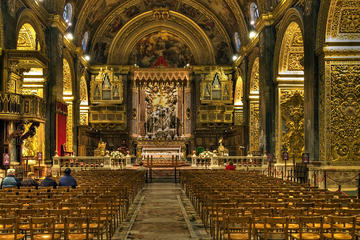
Behind the misleadingly plain Baroque façade of St John's Co-Cathedral hides one of Europe's most spectacular churches, built in thanks by the Knights of St John following their successful routing of the Ottoman Turks in 1565’s Great Siege of Malta. Completed in 1577, most of the design is by Gerolamo Cassar, the Maltese architect who also built the Grand Master's Palace. The entire floor in the nave of Valletta's premier cathedral is composed of around 400 marble tombstones dedicated to prominent Knights of St John …
» Tarxien Temples
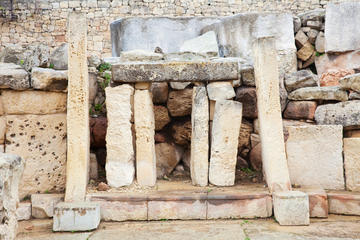
Tarxien is the largest of the major overground megalithic temple sites open to visitors on Malta, which combined, form a UNESCO World Heritage Site. Just south of Valletta, the four interconnecting temples were built between 3,600 BC and 2,500 BC in honor of a mother-goddess of fertility. Today they are oxymoronically surrounded by modern housing but remain of importance thanks to their iconic spiral decorations and the central temple which comprises six apses. The ancient temples are covered with carvings of domestic animals …
» Ta’Quali Craft Village
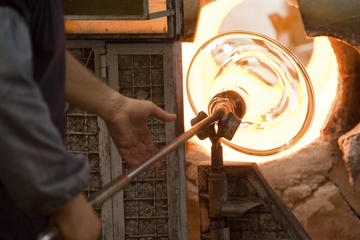
Situated on an abandoned WW2 airfield, Ta’Quali occupies a series of seemingly ramshackle Nissan huts – plans to spruce up Ta’Quali rear their heads from time to time, but so far no funding has been raised for the redevelopment. Don’t be put off by their tattiness as they hide the best selection of authentic Maltese crafts found on the island. This is the place to find delicate filigree silverware, handmade lace, hand-blown glass, leather, linen and cheery painted ceramics, all created by local artisans …
» Ta’Xbiex
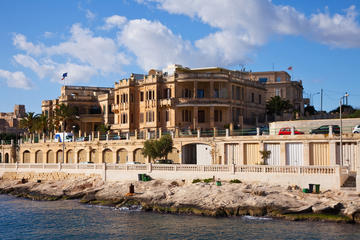
Overlooking Marsamxett harbor between Valletta and Sliema on the side of Msida Creek, well-to-do Ta’Xbiex is Malta’s diplomatic quarter. It’s chiefly notable for its number of embassies and high commissions, all housed in ocher-colored grand villas and palazzi along with an enclave of private mansions. Currently the UK, Ireland, France, Spain and Austria have their embassies here. A seaside promenade runs from St Julian’s to Pieta, passing Ta’Xbiex marina, where sleek yachts bob in their berths …
» Three Cities
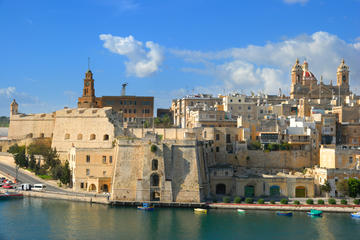
Facing Valletta on the southeast side of the Grand Harbour are three historic cities, Vittoriosa, Senglea and Cospicua, which were originally enclosed by a giant line of fortification constructed by the Knights of St John in the 16th century. These dockside neighborhoods are where the knights were based in their auberges from 1530 until 1570. These were lodgings for the knights, organized by nationality, each with accommodation, with chapels and dining rooms all set around a courtyard. In 1570 the Knights moved across the Grand Harbour to the newly constructed city of Valletta …
» Upper Barrakka Gardens
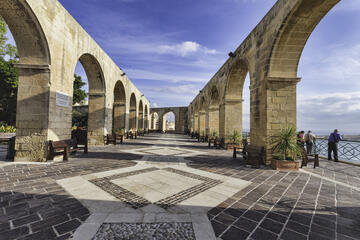
These beautifully landscaped gardens complete with follies, a statue of Sir Winston Churchill, a café and benches under shady trees, were created in 1775 on a bastion at the highest point on Valletta’s fortifications. Originally the private property of the Italian members of the Knight of St John, they are twinned with Lower Barrakka Gardens (currently under renovation but with views over the Siege Memorial) on Barriera Wharf. From their position on the south side of the city walls, the gardens provide the perfect vantage point for views over the Three Cities of Vittoriosa, Senglea and Cospicua …
» Valletta Cruise Port
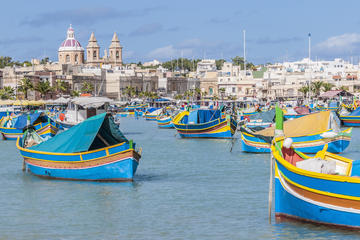
There’s a reason the waterfront of Valletta is one of Europe’s most-visited cruise ports, and travelers to this historic town on the northeast coast of Malta will immediately understand why. Ancient forts, breathtaking buildings, and winding streets dot the hillside of the city that’s served as a backdrop of movies like Troy and Gladiator. Approaching its shores is like approaching another world, where modern-day amenities seem to disappear and the influence of Greek, Roman and Arab culture can be seen at every turn …
» Wignacourt Museum
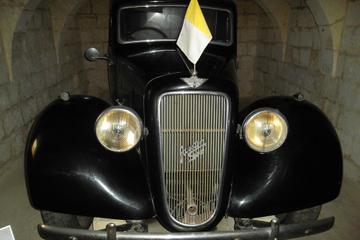
The megalithic temples of Malta and Gozo are a big draw for visitors, and reveal the pre-Christian history of the islands dating back well over 5,000 years. But for a “newer” experience, dating back to the turn of the second millennium and going through WWII, a visit to the Wignacourt Museum is an absolute must. There are two distinct features to the museum. First there is the former residence of the Chaplains of the Knights of Malta, which has been beautifully renovated into a two-story gallery with displays of Maltese and European artists' works …
Page 1 • Page 2


